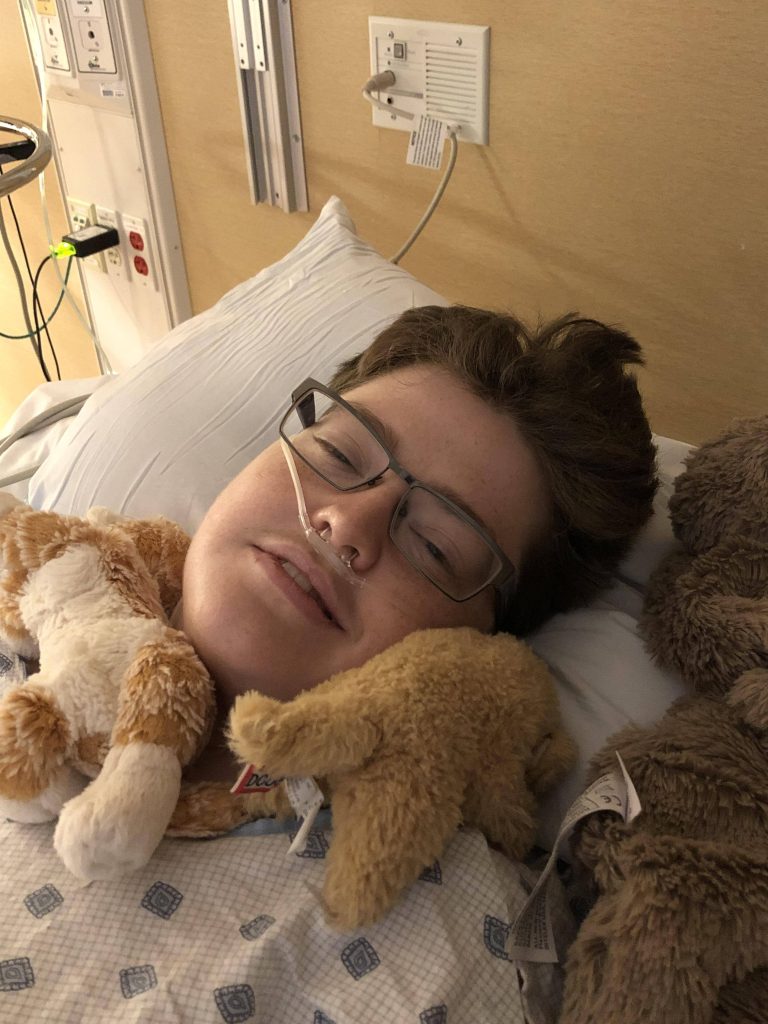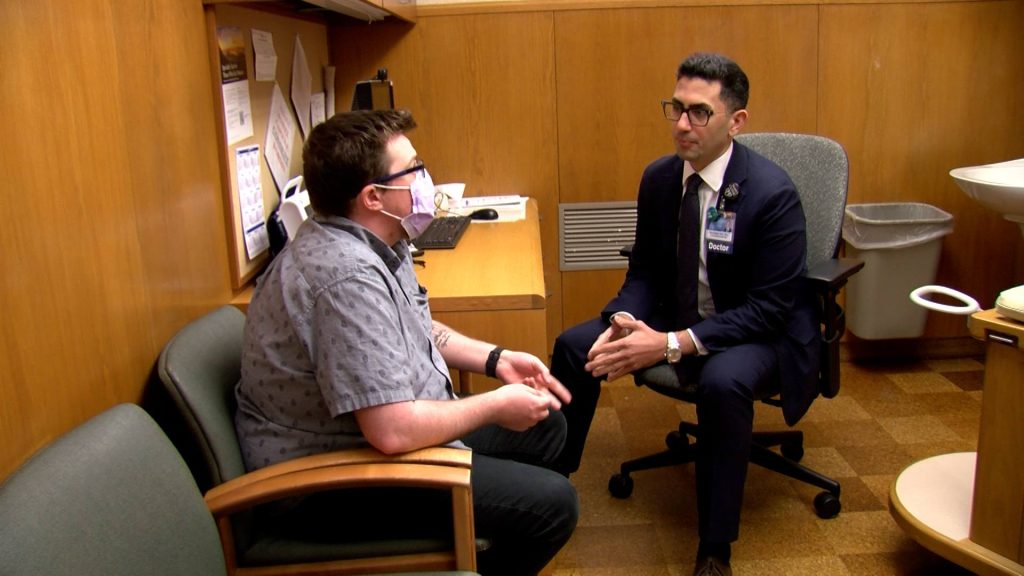Dealing with chronic conditions like Crohn’s disease and ulcerative colitis can be challenging and sometimes embarrassing. Inflammatory bowel disease (IBD) can cause diarrhea, stomach pain, weight loss and other symptoms. Also, the intersectionality of LGBTQ+ identity and having a chronic illness like IBD can sometimes make it difficult for patients to discuss their symptoms with healthcare professionals.
In July 2022, Mayo Clinic was one of the first in the nation to open an IBD Pride Clinic. The clinic aims to create an affirming space for LGBTQ+ patients to talk about their specific healthcare concerns.
Watch: IBD Pride Clinic: Belonging while battling bowel disease
Journalists: Broadcast-quality video (2:58) is in the downloads at the end of this post. Please courtesy: “Mayo Clinic News Network.” Read the script.

Twenty-seven-year-old Ani Roy, a patient, Mayo Clinic staff member and transmasculine nonbinary person, says the IBD Pride Clinic is a place of comfort.
Ani doesn’t take eating for granted. They were diagnosed with Crohn’s disease in 2017 after experiencing painful stomach aches and, at times, being unable to eat.
It was difficult to digest foods
“The only thing that I was really able to eat was chicken strips and raspberry iced tea. For some reason, those were the only things that didn’t make me want to vomit,” explains Ani.
Inflammatory bowel disease took a toll on Ani’s body, causing frequent trips to the toilet with bloody diarrhea and other symptoms.
“It got to the point where I was starting to pass out,” they say. “I was shaking and just, like, sweating, feeling very faint and wasn’t really able to function as a human being.”
After several hospitalizations and failed medications, Ani had their colon and rectum removed, leaving them with an ileostomy. The surgical procedure creates an opening in the stomach to divert stool. Waste is collected in an ostomy bag that’s attached to the abdomen,” says Ani.
Crohn’s disease is mentally and physically challenging
“It is a very big mental adjustment,” they say.
With the stigma surrounding the ileostomy and their gender identity and sexual orientation, Ani reached out to the Mayo Clinic IBD Pride Clinic for support.

“Many LGBTQ+ patients suffer in silence,” says Victor Chedid, M.D., director of the Mayo Clinic IBD Pride Clinic.
“They might be struggling with their identity internally. And add to it the fact that you’re struggling with your diagnosis of inflammatory bowel disease, that has a double or additional psychological impact on you,” says Dr. Chedid.
“It’s so nice to go to a provider that is informed about the LGBTQ+ community so that I don’t feel like I have to educate them on that part of me. I can just be that part of me,” says Ani.
Healing and Hope
The IBD Pride Clinic is staffed by healthcare professionals who are trained to be sensitive in the care of LGBTQ+ patients.
“This is a safe space for you to talk to us about your inflammatory bowel disease and anything that might be impacting your life,” says Dr. Chedid.
Meanwhile, Ani is turning their pain into purpose, sewing ostomy bag covers for themselves and others. Living life one day — and one stitch — at a time.
“Overall, I’m doing pretty well, living life as best as I can,” says Ani.
